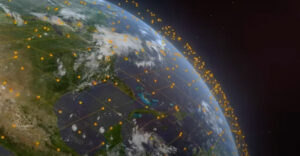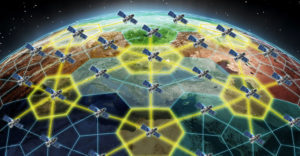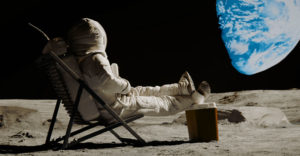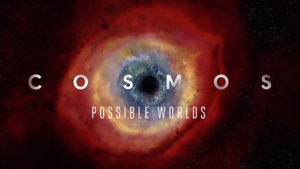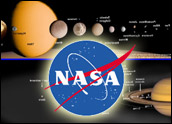
Space fans the world over long have dreamed of exploring the universe for themselves, but a new, 12-module kit from NASA andlittleBits aims to give enthusiasts a way to bring the thrill of space exploration closer to home.
The new littleBits Space Kit, launched on Thursday, includes an assortment of electronic modules and NASA-designed projects and activities designed to allow anyone to observe and measure the universe, build and remotely control a model Mars Rover, or wirelessly send music to a model of the International Space Station.
“In 2012, NASA approached us with a big challenge that they were facing: ‘How can we make space education more interesting and engaging?'” littleBits Product Designer Krystal Persaud told TechNewsWorld. “We then worked very closely with NASA scientists and engineers for 18 months to bring the Space Kit to life.”
Now available for US$189, the Space Kit features 12 modules, five NASA lesson plans, and 10 activities related to STEM — that is, science, technology, engineering and math.
‘Scientifically Accurate Projects’
Targeting users 14 and up, the littleBits Space Kit offers activities focusing on the fundamentals of energy, robotics, wireless data transmission, physics and astronomy, among other topics. Users can gain insight for themselves into how scientists communicate with spacecraft billions of kilometers away, how electromagnetic energy is transmitted, and how the AURA satellite senses gases in our atmosphere, for example.
“The goal — and challenge — in this project was to create highly respectful, scientifically accurate projects that replicate NASA’s groundbreaking work, while also making them modern, engaging and fun for nonscientists,” Persaud explained. “We think this will empower people who were previously uninterested in STEM to get excited and get involved.”
Recent events such as the discovery of Earth-like planet Kepler-186f, SpaceX’s successful docking at the International Space Station, new evidence of the Big Bang, and the introduction of Neil deGrasse Tyson’s new Cosmos documentary mean that “space is more than ever at the center of the cultural conversation,” noted Ayah Bdeir, littleBits founder and CEO.
Indeed, planetariums have even reportedincreased traffic just in the wake of the popularity of the recent movie Gravity.
“We aim to bring space closer by putting the building blocks to invent, learn and explore directly into the hands of educators, students, NASA enthusiasts and builders of all ages,” Bdeir added.
An Open Source Library
The Space Kit is part of a larger open source library from littleBits that seeks to break electronics down into simple but powerful modules.
“LittleBits products are a teaching tool: Sharing our designs allows for the possibility of teaching how these circuit designs work down to a circuit level,” Persaud explained. “This means that anyone can use littleBits products and then come back to them later on in their education for a deeper understanding of electronics.”
Also launching on Thursday were three new littleBits modules — dubbed “IR LED,” “Number” and “Remote Trigger” — that can be used with any of the modules in the extended LittleBits library to create trillions of circuit combinations.
‘One of the Most Inspiring Disciplines’
“Progress and creativity are driven by curiosity,” Mario Livio, astrophysicist with the Space Telescope Science Institute and author ofBrilliant Blunders, told TechNewsWorld.
“As long as people, young and old, are curious, we can be sure that we’ll see advances in both the sciences and the arts,” Livio added.
“Space science is one of the most inspiring disciplines in this respect, since on one hand it addresses our cosmic origins, and on the other it introduces us to fascinating technologies,” he concluded. “All endeavors that can engage the public in these directions are welcome.”











